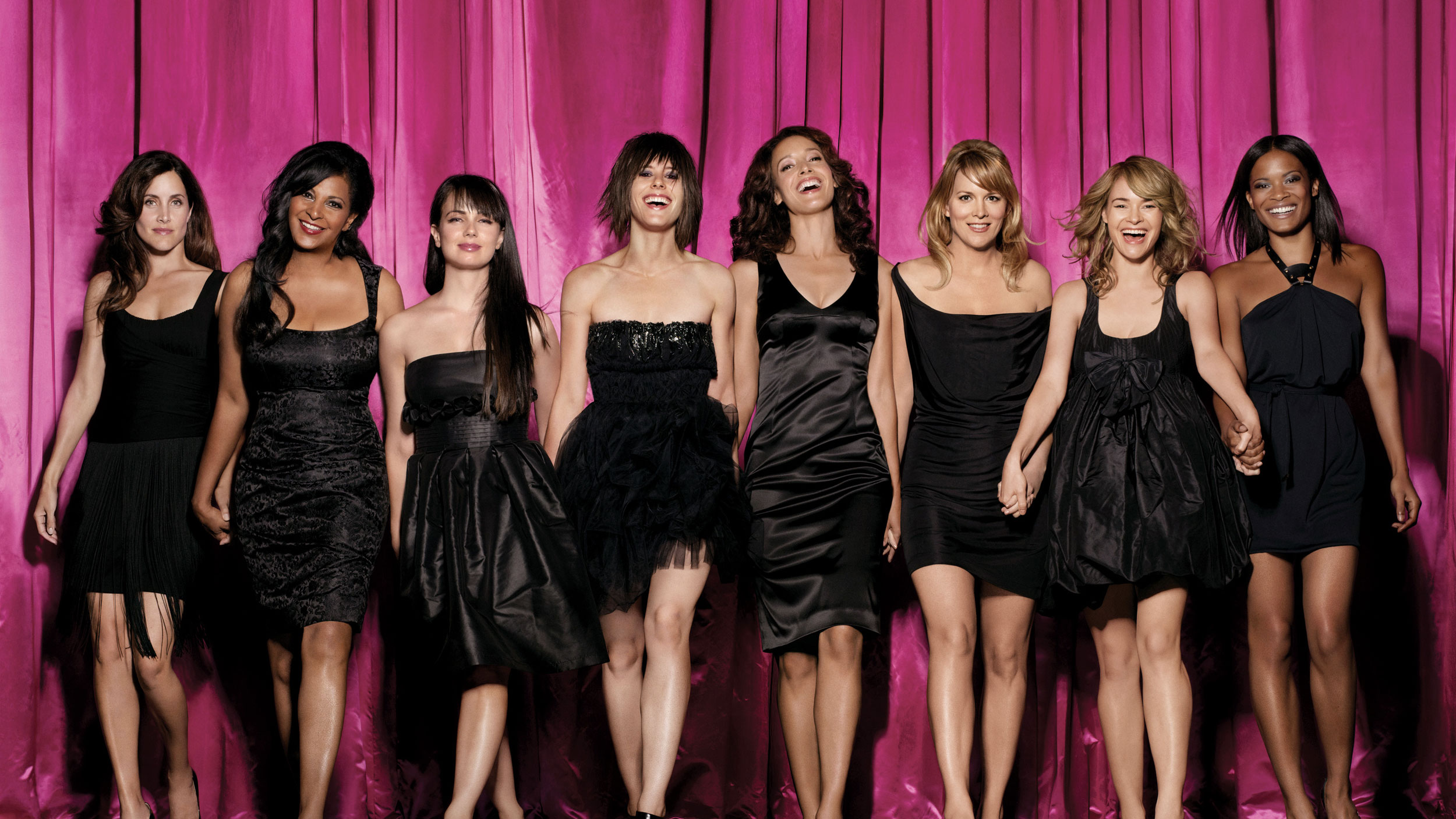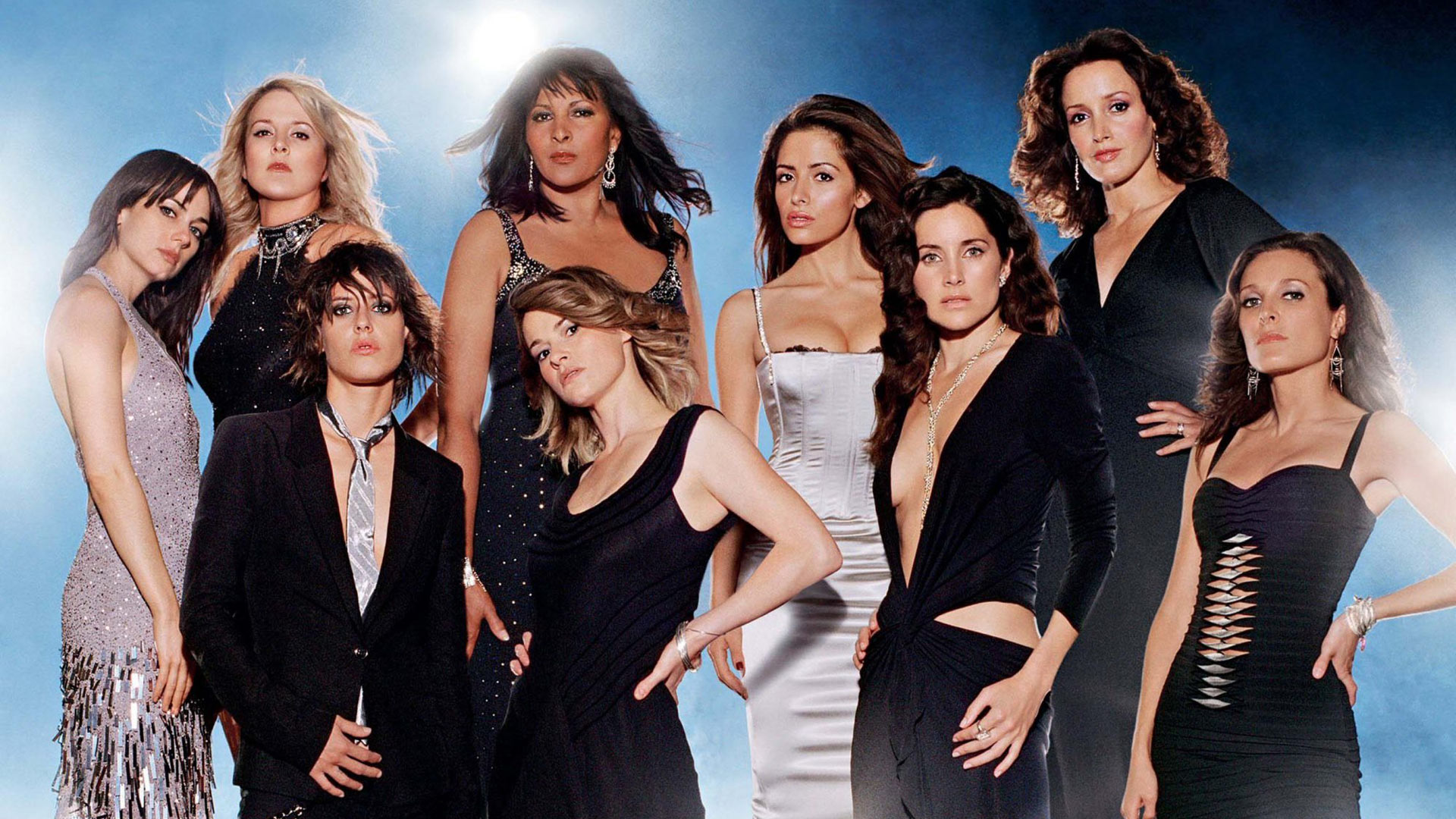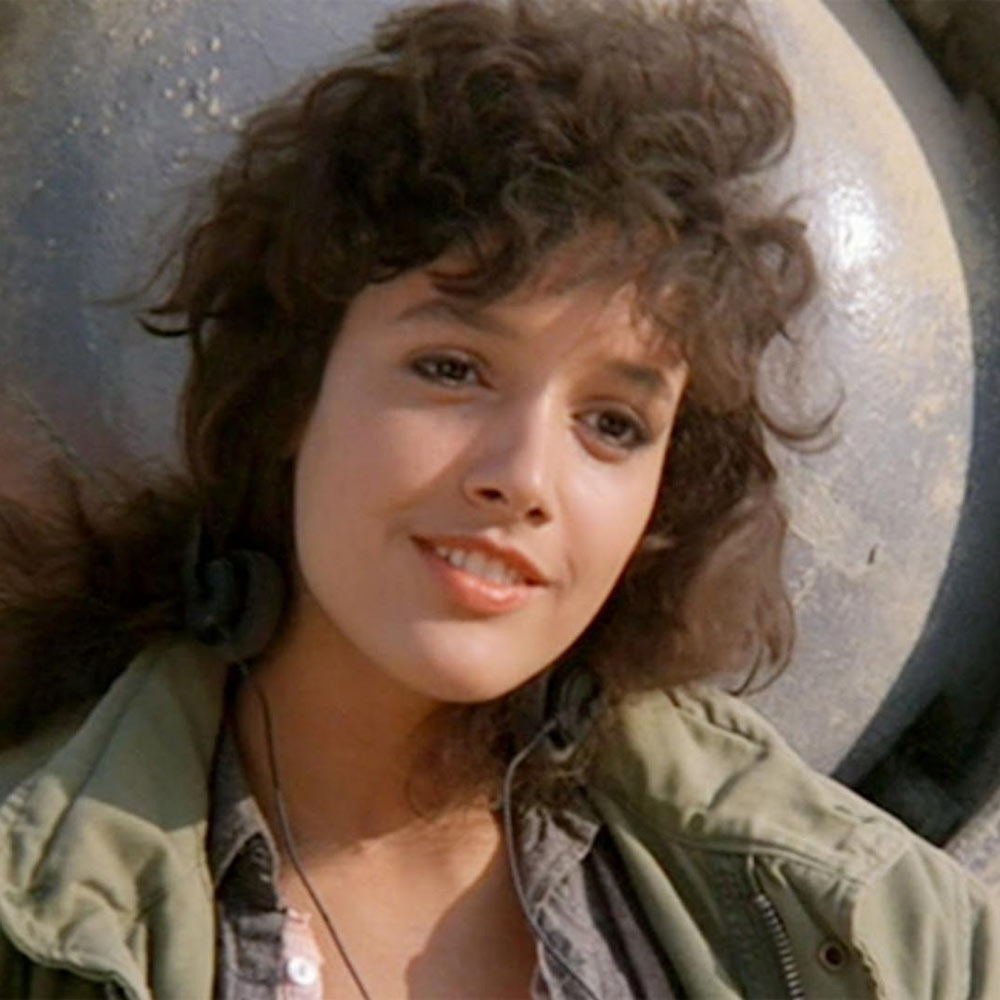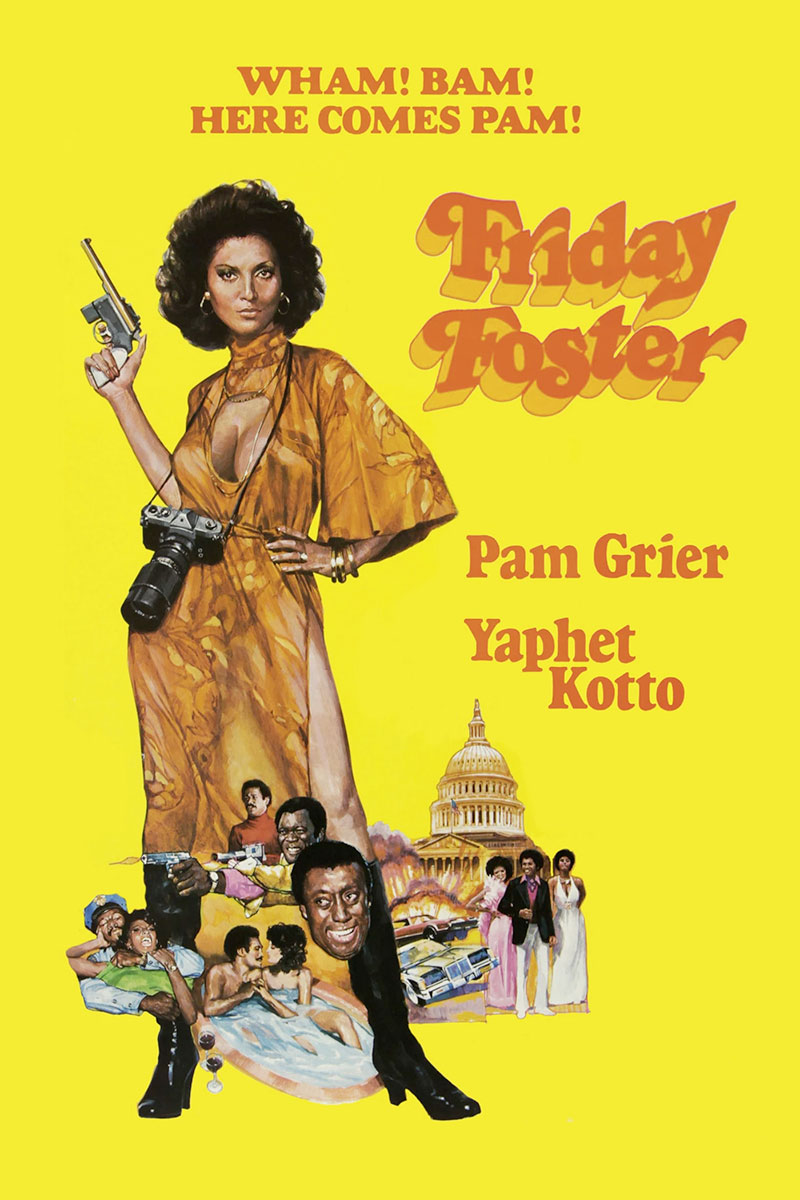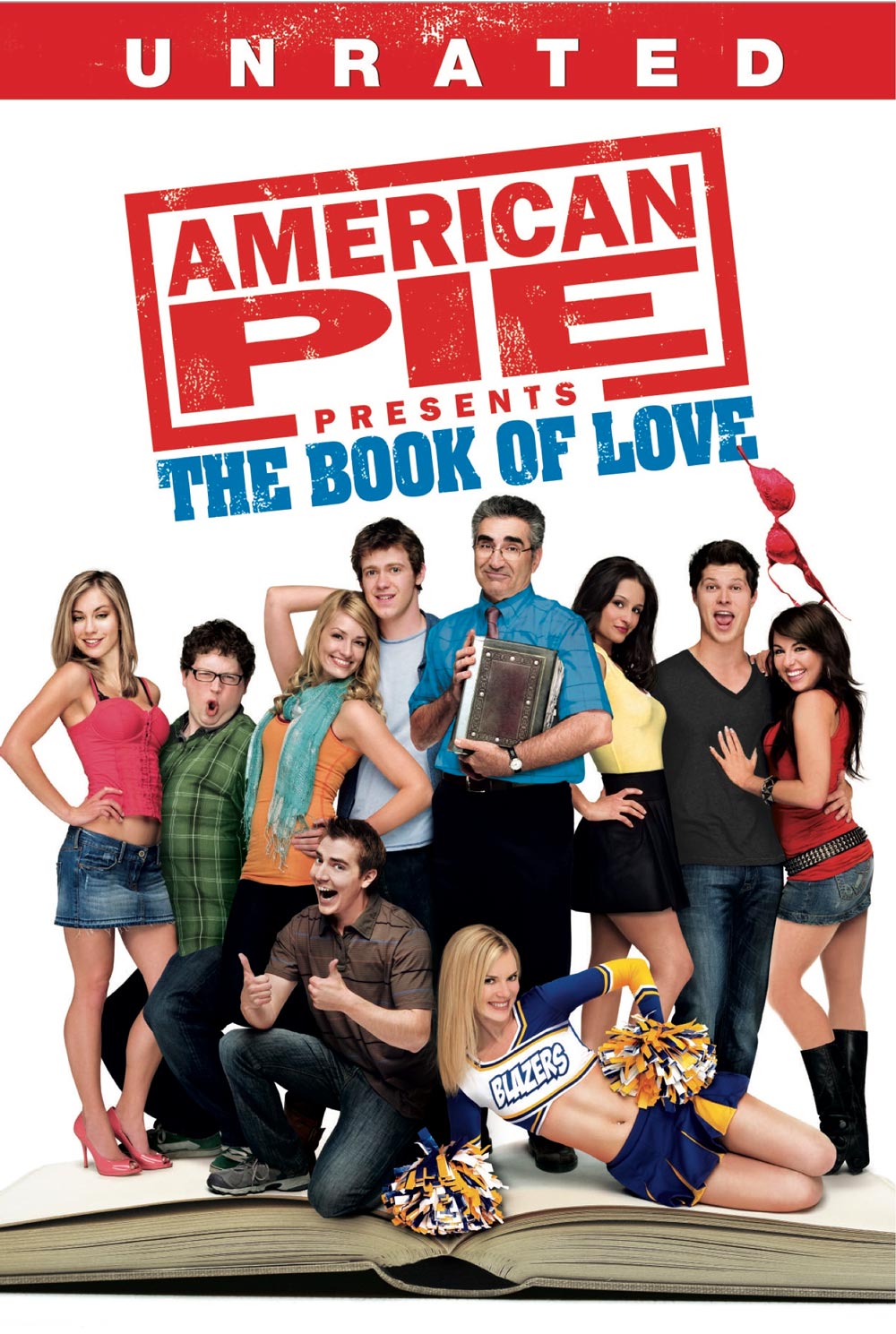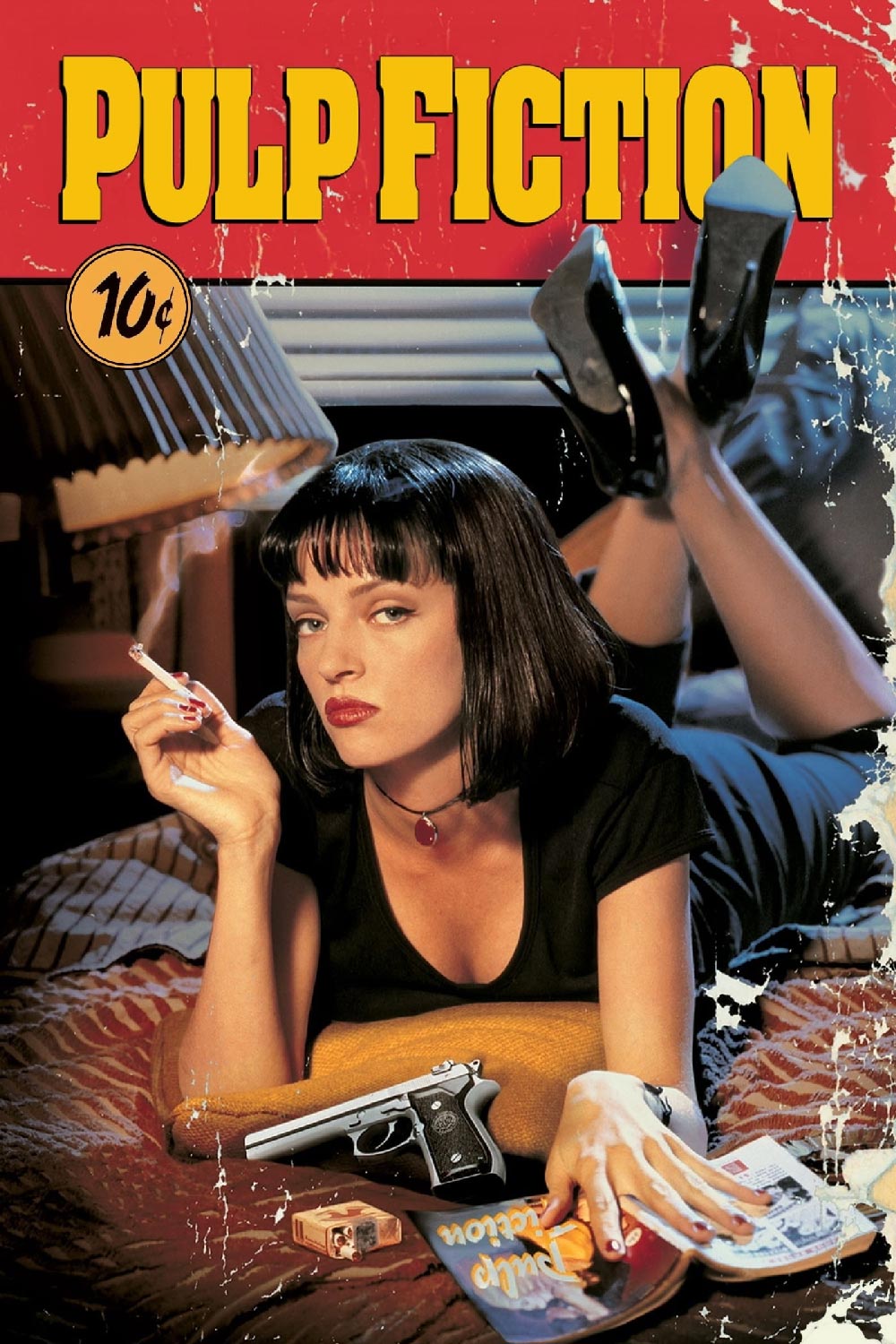Published on
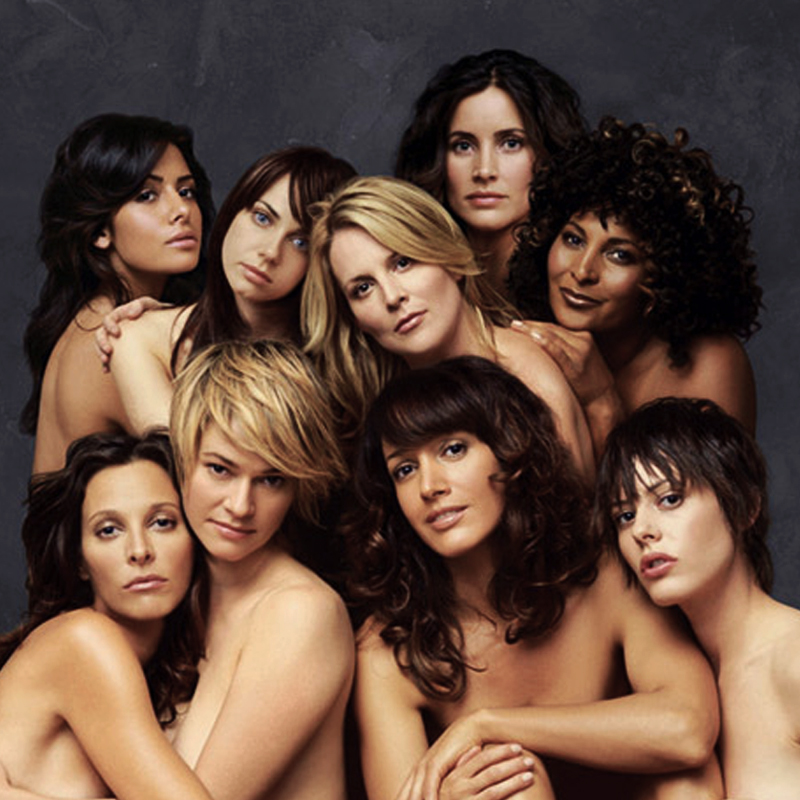
After watching the first season of The L Word: Generation Q I decided to re-watch the original show. I have only seen it once, back when it originally aired, but I could remember the show clearly. Not every detail, but I could still remember a lot of the characters and certain story-lines. The original show was ground breaking in that it revolved around a group of gay women, not written as stereotypes but rather as characters of flesh and blood. Next to the gay women and men, the show also featured a transgender character in a central role. Another revolutionary element.
But that was 2006 and time has not been gentle to The L Word. There have been many negative comments about the show, mostly criticisms on how the show handled it’s ground breaking topics. The transgender character Moira/Max is nowadays considered to be problematic and the show looks down on characters that don’t fit the gay label. Especially bisexuality is frowned upon. At one moment a gay character asks a bisexual character to just make up her mind. When one character goes back to dating men after her relationship with a women ends, the other characters scold her for it. As if she has betrayed them.
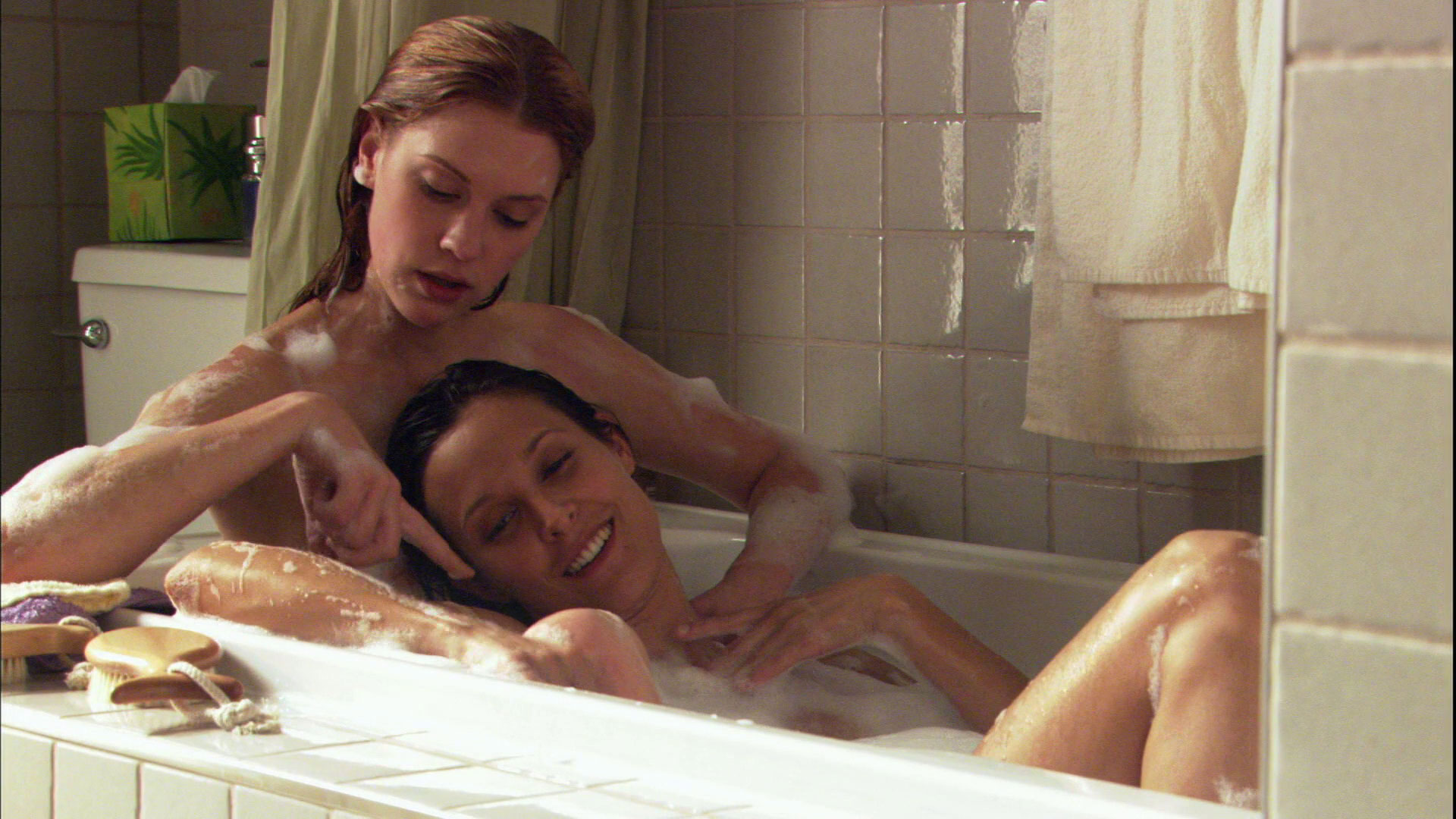 I guess some people read too much into a show like this. The show is a drama series like many other, the only difference here is that the central characters belong to the LGBT-community. Well mostly the L community with the occasional G, T or B thrown in. Other than that the ingredients are the same: people fall in love, people cheat, some careers skyrocket while other explode, alcoholics relapse and occasionally someone dies.
I guess some people read too much into a show like this. The show is a drama series like many other, the only difference here is that the central characters belong to the LGBT-community. Well mostly the L community with the occasional G, T or B thrown in. Other than that the ingredients are the same: people fall in love, people cheat, some careers skyrocket while other explode, alcoholics relapse and occasionally someone dies.
But what the makes the show stand out from other dramas, aside from the subject matter, is how hot and sexy the show is. This show is full of steamy sex scenes, some of them lingering on the edge of soft pornography. I remember one reviewer at the time using a sentence in the vein of “Come for the tits, stay for the characters”. The reason I remember this, is because this was exactly the way I got into the show. My girlfriend was watching this show and I caught glimpses of it. After a while I kind of got curious and decided to binge the first three seasons on my own so we could watch the rest together. My heterosexual male gaze was what got me watching this show, but the characters kept me watching.
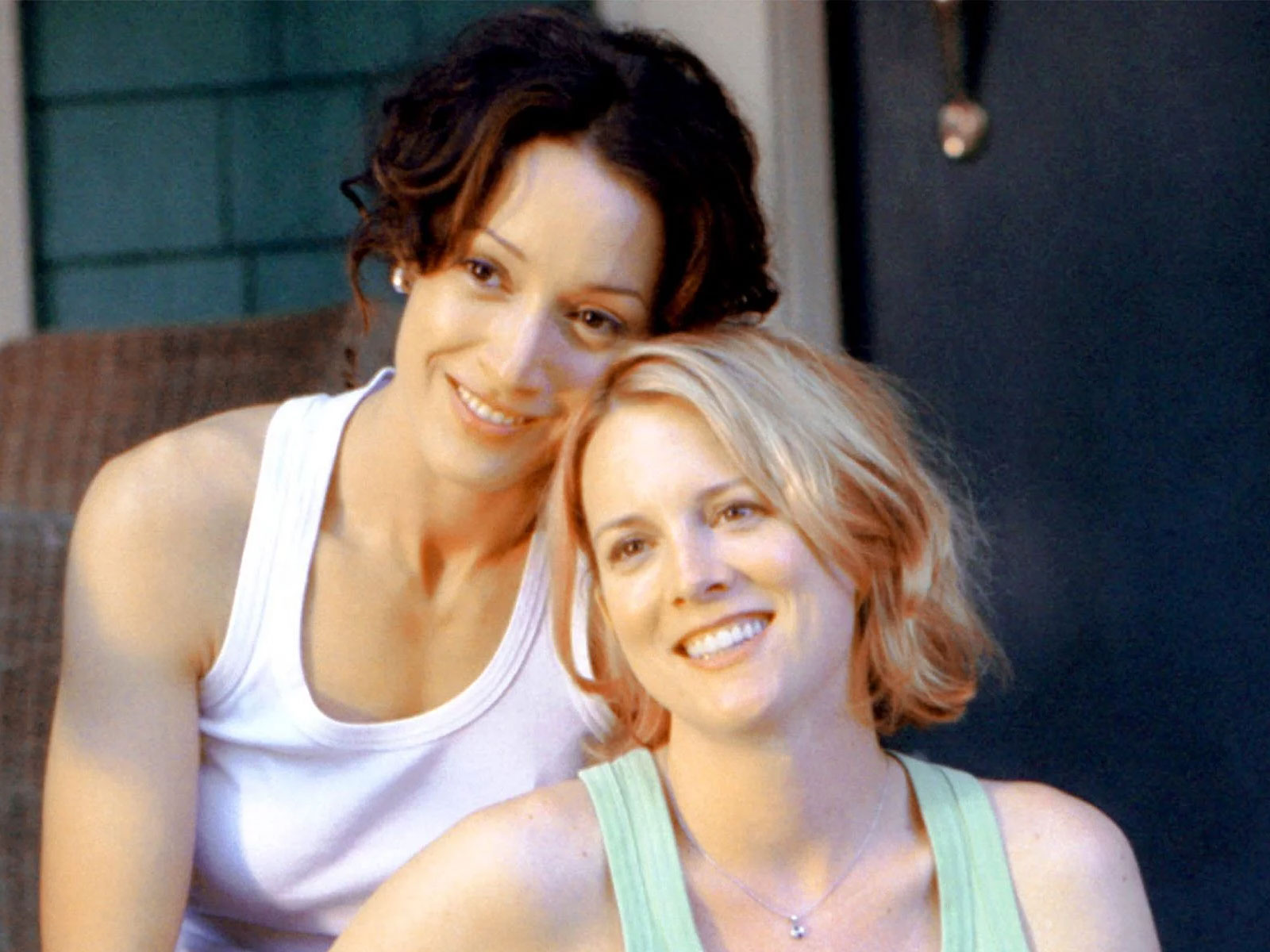 The show itself actually does the same thing. We enter this world of lipstick lesbians in LA through the heterosexual character of Jenny Schechter when she moves in with her boyfriend Tim. Living next door are Tina and Bette, a lesbian couple who are trying to conceive a child. Halfway through the first episode Jenny witnesses their friend Shane using the pool and making love to a girl. Jenny becomes curious and after she is introduced to all of Bette and Tina’s friends, goes down the lesbian rabbit hole like an Alice in Gay Wonderland. She becomes entangled in an affair with Marina, the owner of a local diner, putting all of the securities she has in life in jeopardy.
The show itself actually does the same thing. We enter this world of lipstick lesbians in LA through the heterosexual character of Jenny Schechter when she moves in with her boyfriend Tim. Living next door are Tina and Bette, a lesbian couple who are trying to conceive a child. Halfway through the first episode Jenny witnesses their friend Shane using the pool and making love to a girl. Jenny becomes curious and after she is introduced to all of Bette and Tina’s friends, goes down the lesbian rabbit hole like an Alice in Gay Wonderland. She becomes entangled in an affair with Marina, the owner of a local diner, putting all of the securities she has in life in jeopardy.
The first season focuses on the most obvious elements of the lesbian lifestyle. It deals with subjects like being closeted and coming out, exploration of feelings for someone of the same sex while being heterosexual and trying to start a family as a lesbian couple and finding a donor. Later seasons would focus more on soapy elements like uber-player Shane leaving someone at the altar and a character ending up in jail in what feels to be a pilot episode for Orange Is The New Black. Still, even in the later seasons they touched upon societal topics like the “Don’t Ask, Don’t Tell” policy in the US army. But those serious stories were undercut by almost cartoonish characters like Dawn Denbo and her lover Cindy.
Looking back I want to focus on a couple of memorable and/or problematic elements of the show, beginning with:
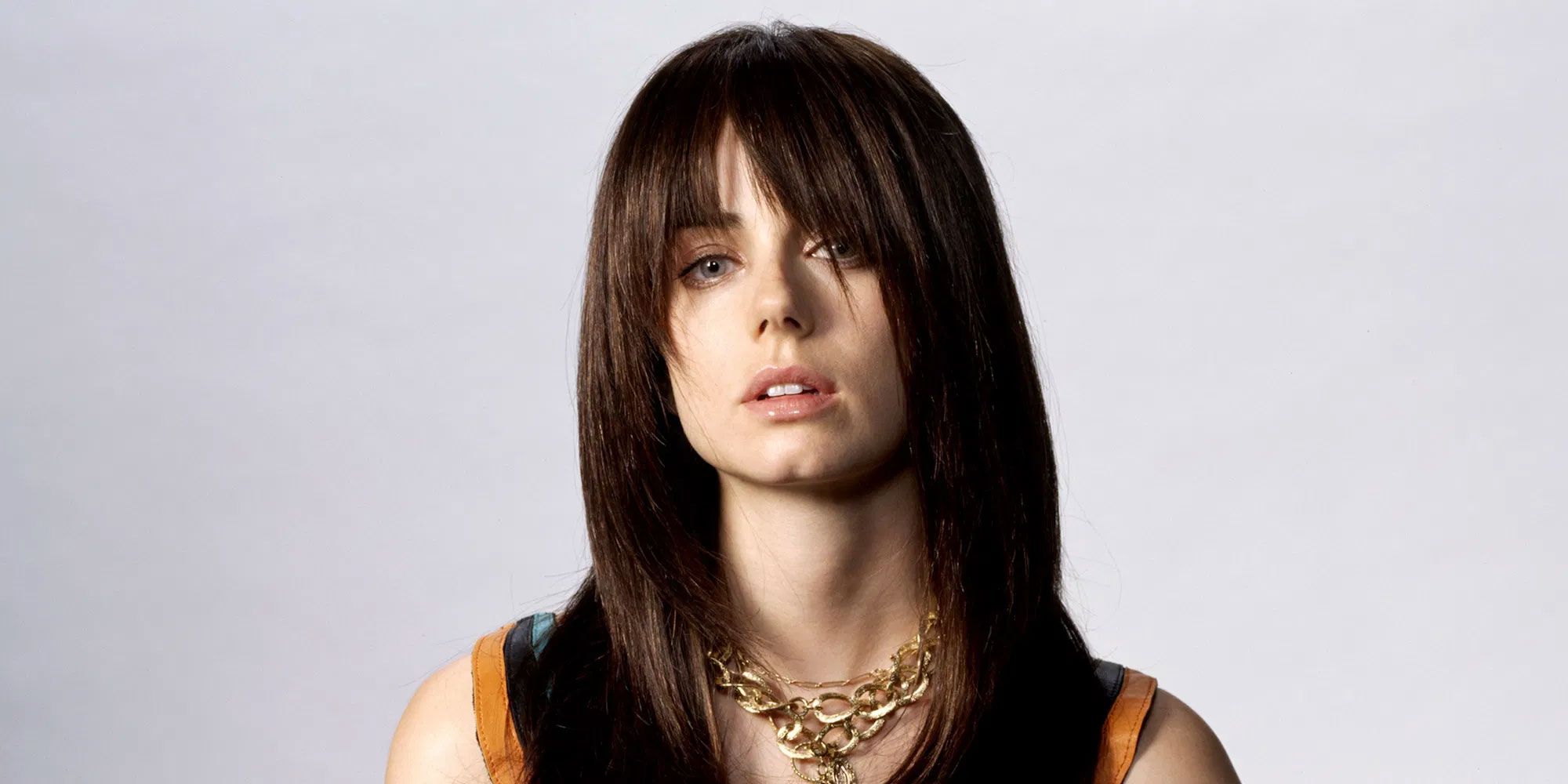
Jennifer Schechter
Jenny is the gateway through which we visit the world of lipstick lesbians in LA. The protagonist who would end up being one of the most hated characters in the history of television. She moves in with her boyfriend Tim, but is quickly seduced by alpha lesbian Marina and her sultry European accent. Her character has some annoying traits straight from the beginning but during my second viewing I tried to deduct the moment that she actually became so hated.
The moment I could pin down for myself was early in the final season which starts off with her death and is then shown in flashback leading up to the event of her murder/suicide/accident. Each of the season six episodes is focused on her pissing of a another main character giving them a motive for her possible murder. In the process the character of Jenny also pissed the audience off more and more with each episode.
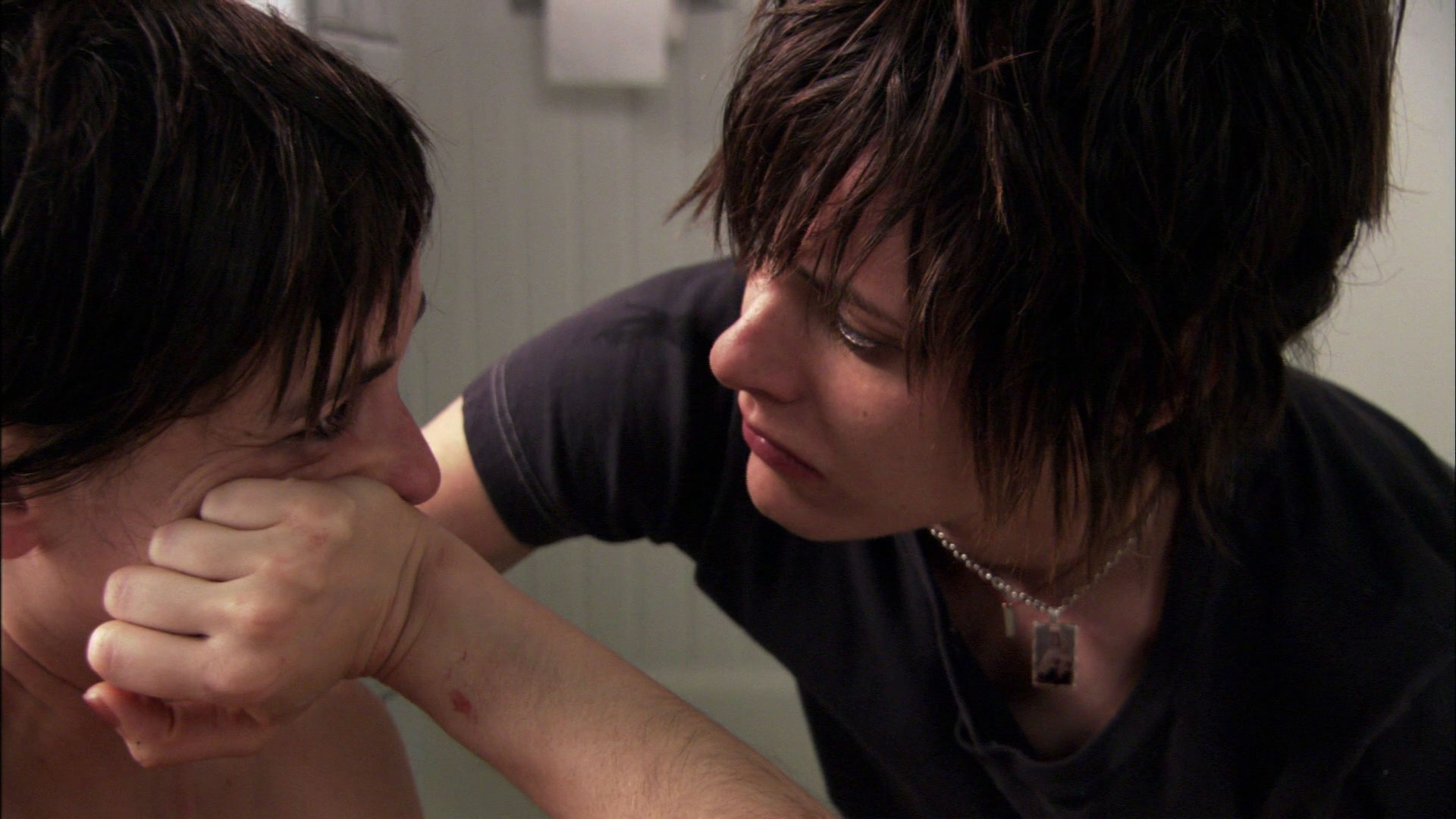 I kind of understand the hate, but I never hated her that much. She always went from this bad ass character to a really obnoxious one and back again. Sometimes even between scenes. It didn’t help that the writers never really had a clear view of what they wanted to do with the character after the first season. She started off as this aspiring writer who wrote love stories about manatees and got confused about her sexuality. After that her character was approached differently each season.
I kind of understand the hate, but I never hated her that much. She always went from this bad ass character to a really obnoxious one and back again. Sometimes even between scenes. It didn’t help that the writers never really had a clear view of what they wanted to do with the character after the first season. She started off as this aspiring writer who wrote love stories about manatees and got confused about her sexuality. After that her character was approached differently each season.
In the second season she went crazy as she lost herself in a childhood trauma which was communicated to us through a whole slew of bizarre dream sequences and she ended up being a cutter. In the third season she had a relationship with Moira who was a butch dyke at first but turned out to be transgender. She was really sweet and supportive of her/him but ended the relationship on the basis that she is a lesbian and Moira was transitioning to a man.
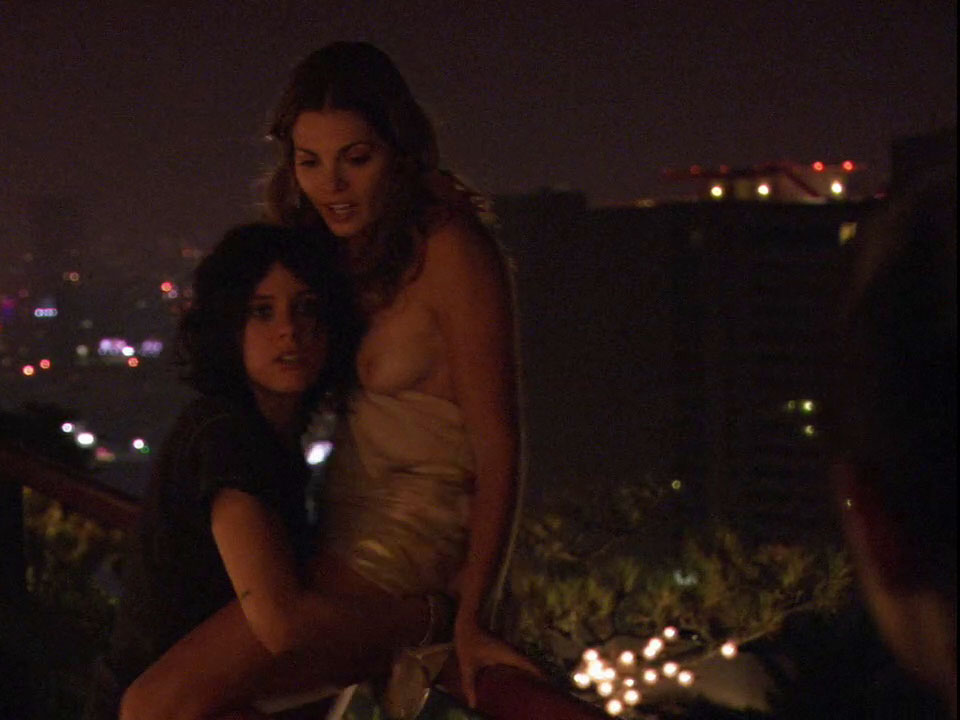 In the fourth season she published a critically skewered book based on her childhood and goes after one critic by adopting a dog and having it put down by the critic’s veterinarian girlfriend giving her a gateway into seducing the vet. She also writes a successful series of short stories in The New Yorker which are being turned into a movie overnight. In the fifth season she directs the movie based on her short stories and has a relationship with the movie’s star Niki Stevens. The end of the season leaves her broken as she’s removed as the director under the threat of blackmail and her best friend Shane eats out Niki at a party. The final season just has her go into full bitch mode as she destroys relationships, steals the movie print and manipulates everybody around her.
In the fourth season she published a critically skewered book based on her childhood and goes after one critic by adopting a dog and having it put down by the critic’s veterinarian girlfriend giving her a gateway into seducing the vet. She also writes a successful series of short stories in The New Yorker which are being turned into a movie overnight. In the fifth season she directs the movie based on her short stories and has a relationship with the movie’s star Niki Stevens. The end of the season leaves her broken as she’s removed as the director under the threat of blackmail and her best friend Shane eats out Niki at a party. The final season just has her go into full bitch mode as she destroys relationships, steals the movie print and manipulates everybody around her.
But looking back and reading the comments per episode on TV Time, a lot Jenny’s actions actually makes sense. She is given a lot of shit I don’t think she deserves. Take the movie rights as an example; Her neighbor Tina is a movie producer and wants the rights. Instead of just selling them to Tina, Jenny actually offers the rights to other studios to create a bidding war. And yet she is scolded for that, because Tina is her friend. Something she actually isn’t. Tina is just her neighbor and Tina actually states that she can’t stand Jenny but has to play nice in order to get the rights. And Jenny is the bitch here?
The character had it fair share of problems and was obviously bat shit crazy. But she was also a product of lazy writing and certainly stood her ground on many cases for which she was scolded anyway.
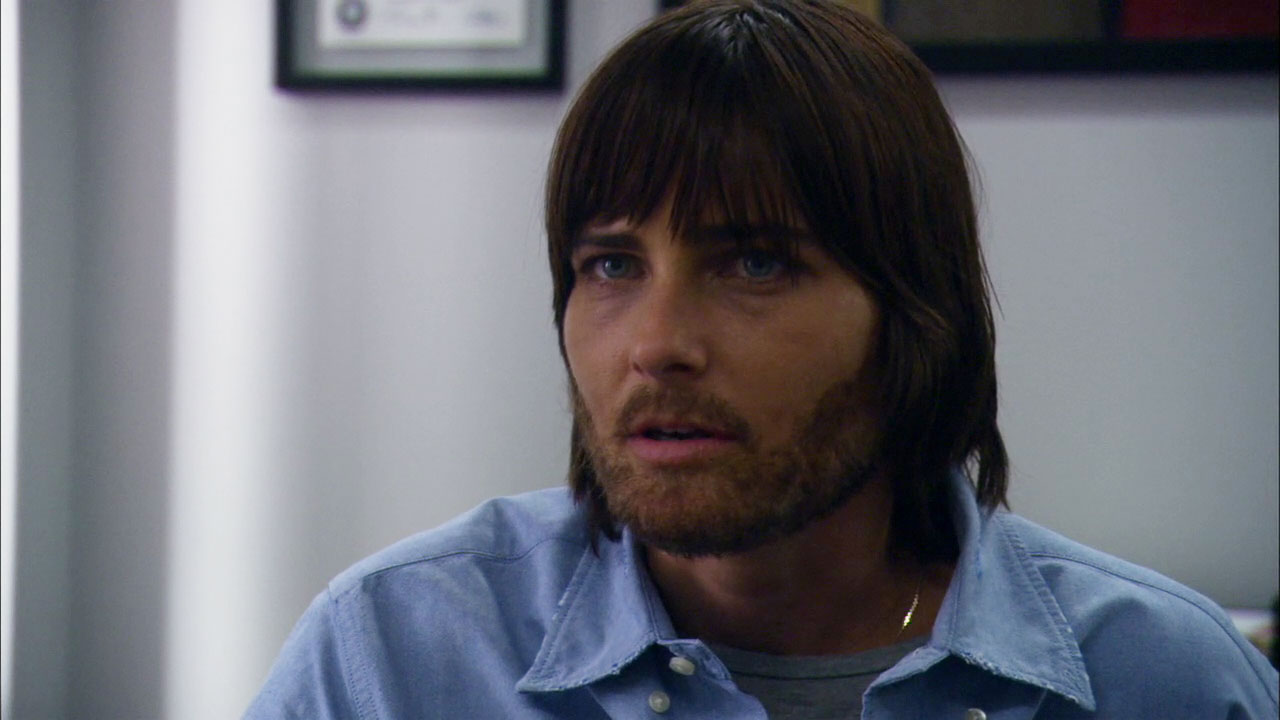
Max/Moira
I already mentioned the trans male character of Max and there has been a lot of criticism the last few years on how this character was handled. Apparently it was full of negative stereotypes. She purchases black market testosterone after which she becomes aggressive and goes from a lesbian woman to a gay man by the end of the show. In the final season she/he is actually knocked up by a man. This actually makes this a heterosexual relationship as he as a man is penetrating a vagina.
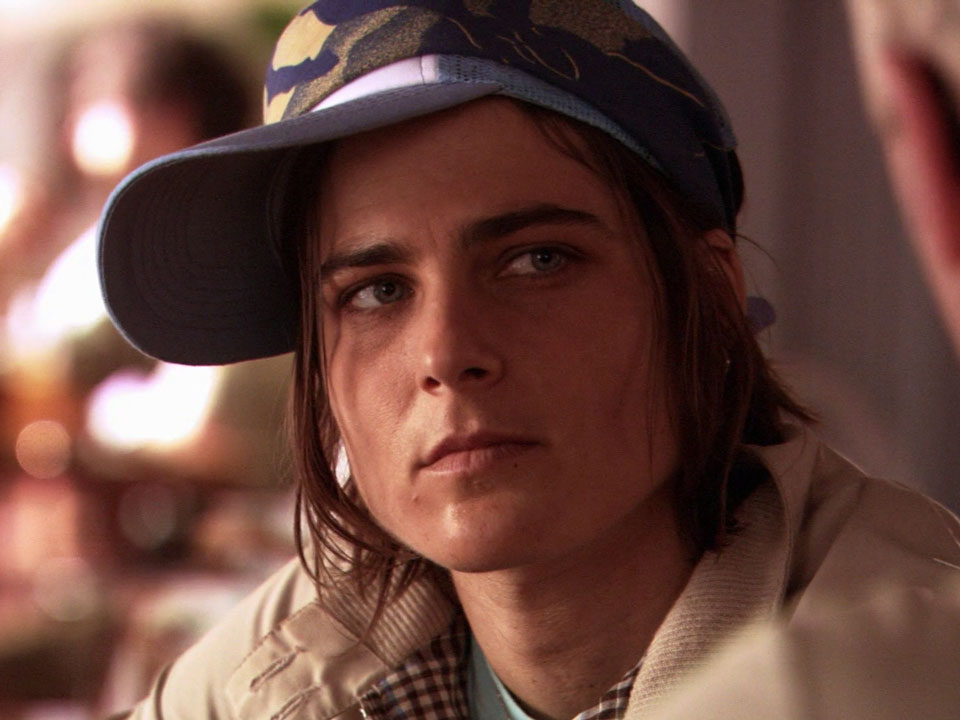 Now the whole transgender discussion has become completely toxic over the past few years. The previous paragraph has probably pissed some readers off just because I’m not using pronouns correctly. There is an “either you’re with us, or against us” sentiment in the debate and everybody who is critical of some transgender discussion like the participation of trans women in female sports is directly labeled as a trans-phobe.
Now the whole transgender discussion has become completely toxic over the past few years. The previous paragraph has probably pissed some readers off just because I’m not using pronouns correctly. There is an “either you’re with us, or against us” sentiment in the debate and everybody who is critical of some transgender discussion like the participation of trans women in female sports is directly labeled as a trans-phobe.
I do think there is an interesting form of hypocrisy surrounding transgenders. They’re trying to convince the world that gender is a social construct, and that there are no differences between men and women, yet their whole personal lives revolve around their gender identity. We must accept that a biological man can participate in a women’s competition because he identifies as a she. We are not allowed so see the difference between the sexes. At the same time, the fact that there differences between the sexes is what their whole personal world is all about.
It’s complex stuff and as a straight white male I can’t probably say too much about it, but I do have a bit of skepticism when it comes to the subject. I didn’t have much trouble with the transition of Max in the show and seeing him as a guy. He dressed like a guy, grew a beard. He looked the part. Nowadays we have guys with shoulder length hair yelling at store clerks demanding to be called ma’am. These are strange times we’re living in.
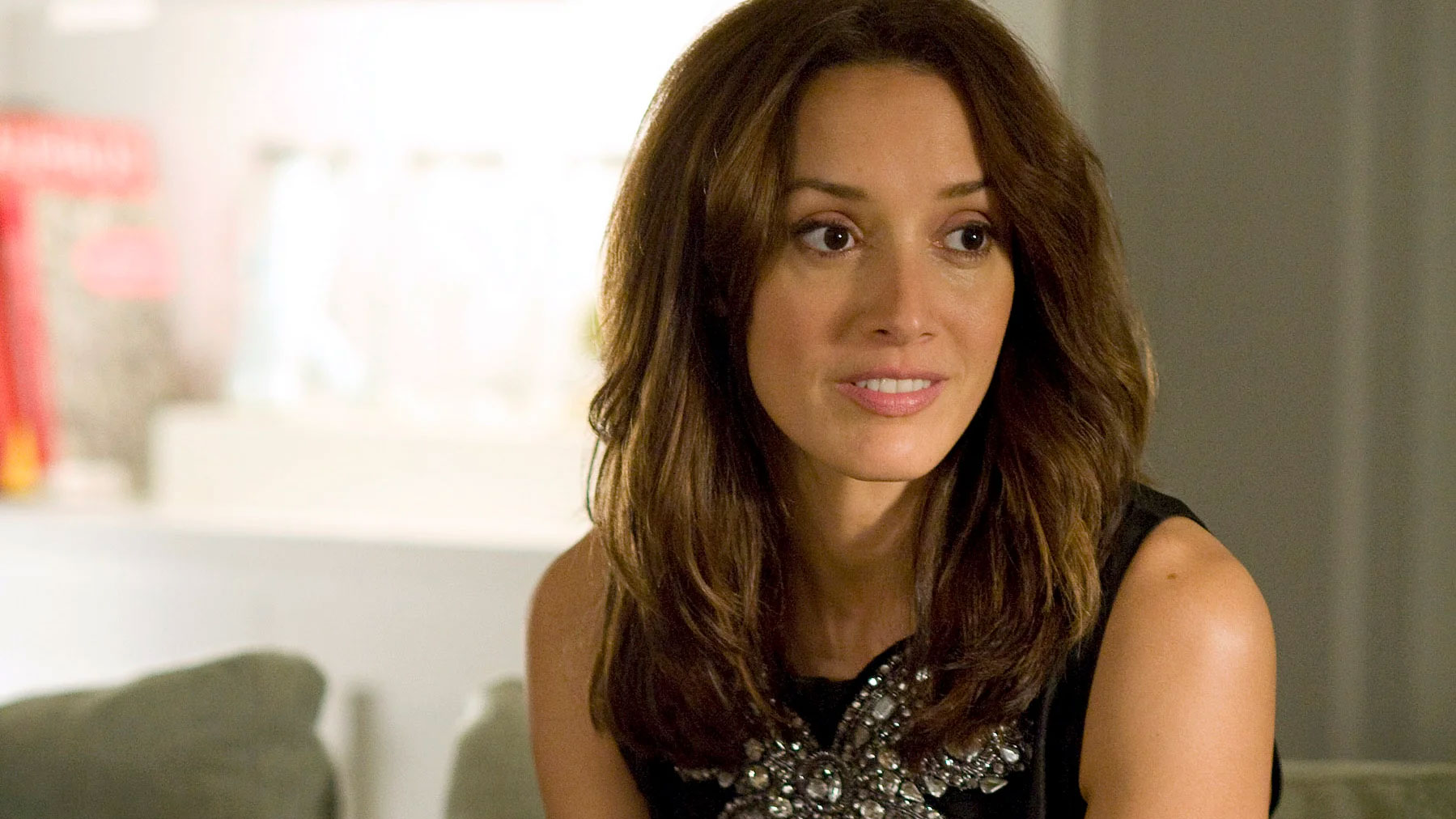
Lifestyle of the rich and famous
In the first season it’s established that Dana and Bette are the high earners of the group of lesbians. The others have normal income jobs or just go from job to job. The financial status of the characters doesn’t always correspond with where or how they live. In the first season Bette has a well paid job at an art center while her neighbor is just a swim coach on a high school. A lot of characters also become relatively wealthy overnight. Jenny becomes a published writer, has a story turned into a movie which she directs and sells another script for half a million dollars. Max starts out poor but gets a job at a tech company and starts with a 5 or 6 figure income.
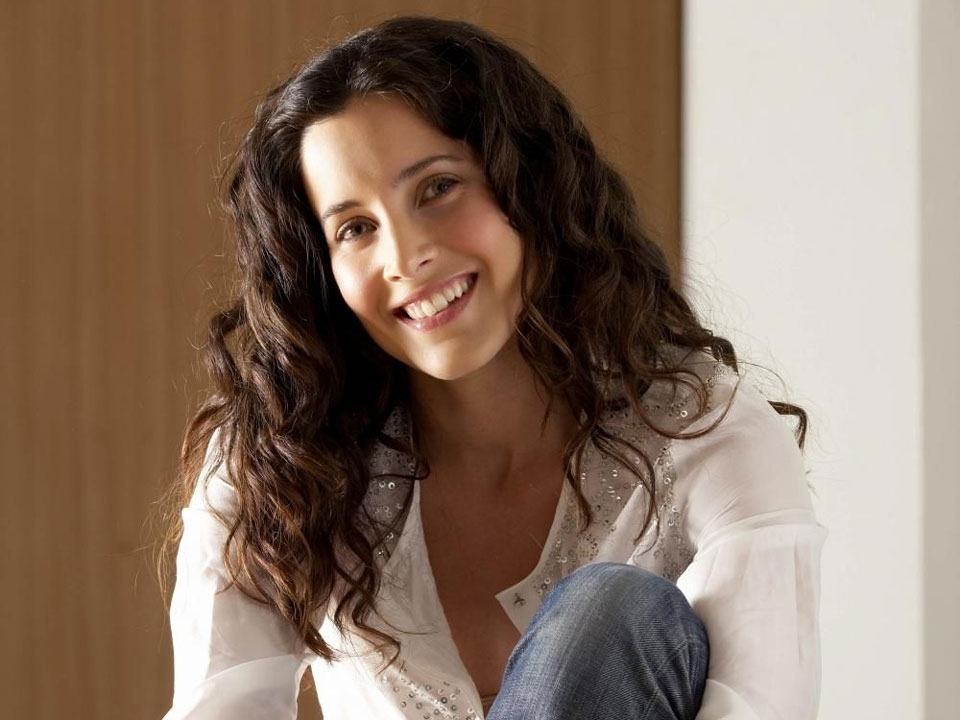 In the second season Helena Peabody joins the main cast and she is an extremely wealthy woman coming from old money. Tina goes from being a housewife to running a movie studio. Alice goes from an article writer to a radio host and then to a daily TV talk show host. New characters that are added to the cast throughout the six seasons often come have a wealthy background. A successful artist, a rich divorcee, a lawyer and the dean of a university to give a few examples.
In the second season Helena Peabody joins the main cast and she is an extremely wealthy woman coming from old money. Tina goes from being a housewife to running a movie studio. Alice goes from an article writer to a radio host and then to a daily TV talk show host. New characters that are added to the cast throughout the six seasons often come have a wealthy background. A successful artist, a rich divorcee, a lawyer and the dean of a university to give a few examples.
The problem with rich people is that being gay seems to be less of an issue for them. Max is bullied out of the company, something which will never happen to self-made characters like Joyce or Phyllis. The rich characters are also often just used for comic relief or as nefarious. Sometimes both.
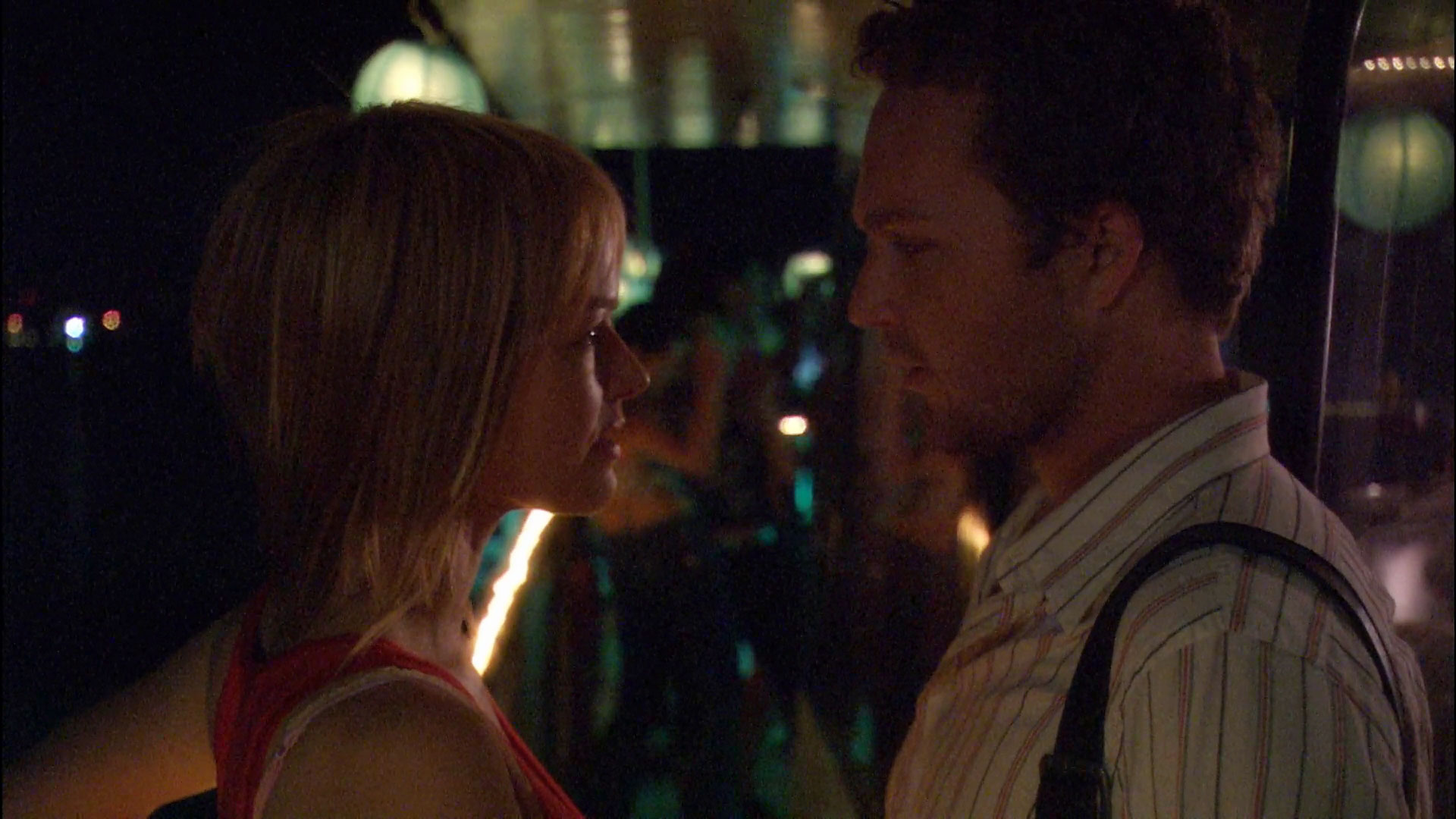
Aversion to other sexual orientations
For a show that was deemed groundbreaking due its subject, it had quite an aversion to other sexual orientations than gay. The show’s lesbians weren’t always acceptable of the other letters in the LGTBQ acronym, save for the G’s. The character of Alice identifies as a bisexual and her sexuality is commented on multiple times with remarks like “will you make up your mind”. As if there is no alternative than being either straight or gay.
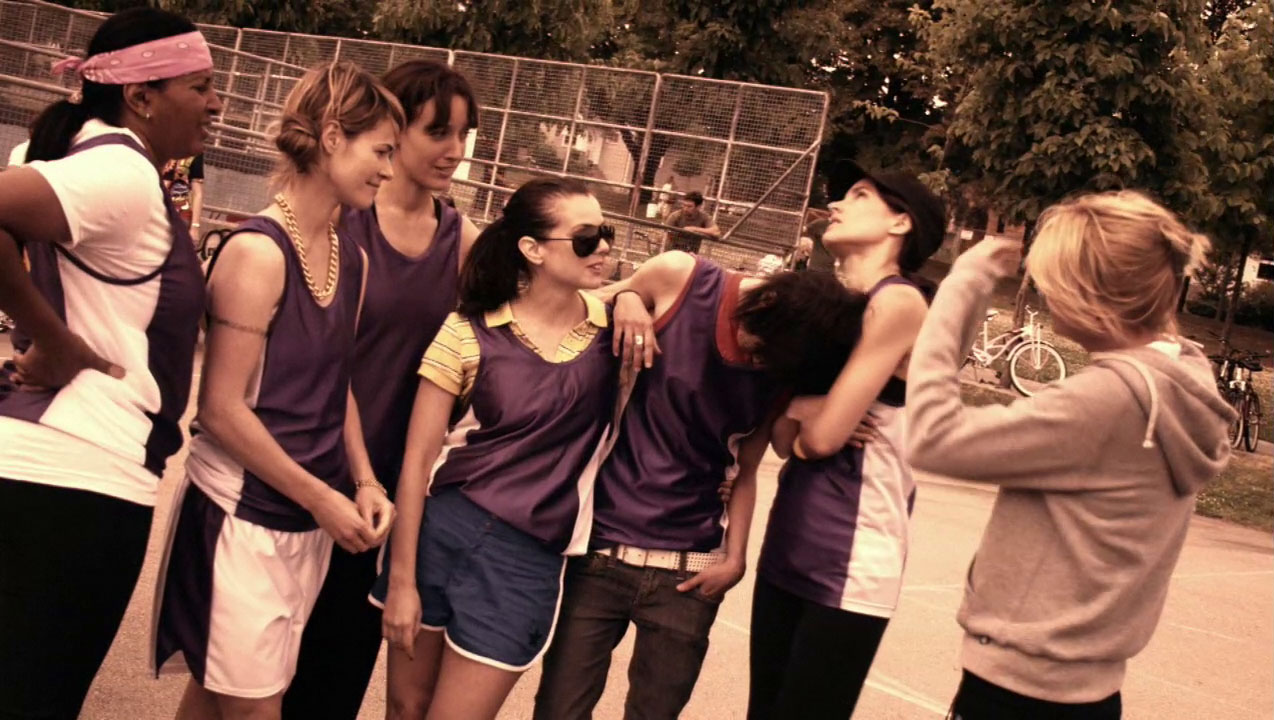 This is also the case with Tina who was straight before she met Bette, had a relationship of eight years with her before Bette decided to fuck a female plumber. In the third season she meets a single dad and falls for him thus reverting to her previous heterosexual lifestyle. This drastically changes her place in the group becoming more of an outsider. In the fourth season Jenny actually calls her out on her changed sexual orientation during a game of basketball saying that she doesn’t belong on a team that consists of lesbians and even another heterosexual character. She ends up playing for the other team in what serves as a bit of meta commentary.
This is also the case with Tina who was straight before she met Bette, had a relationship of eight years with her before Bette decided to fuck a female plumber. In the third season she meets a single dad and falls for him thus reverting to her previous heterosexual lifestyle. This drastically changes her place in the group becoming more of an outsider. In the fourth season Jenny actually calls her out on her changed sexual orientation during a game of basketball saying that she doesn’t belong on a team that consists of lesbians and even another heterosexual character. She ends up playing for the other team in what serves as a bit of meta commentary.
Moira/Max isn’t accepted entirely throughout the entire show. Mostly by Alice who keeps on making remarks that are now deemed trans-phobic. In the final season a pregnant Max is called a beautiful woman by Jenny, which might technically be true, but is also hurtful to Max. But long before Max came along, the first season contains the character of Lisa; a man identifying as a lesbian. It’s played for comic relief mostly. Especially during a sex scene between him and Alice in which he opts to use a dildo for sex but Alice prefers the real thing he has. It ends with her basically forcing him to use his penis which makes him very uncomfortable. This brings me to my next point:
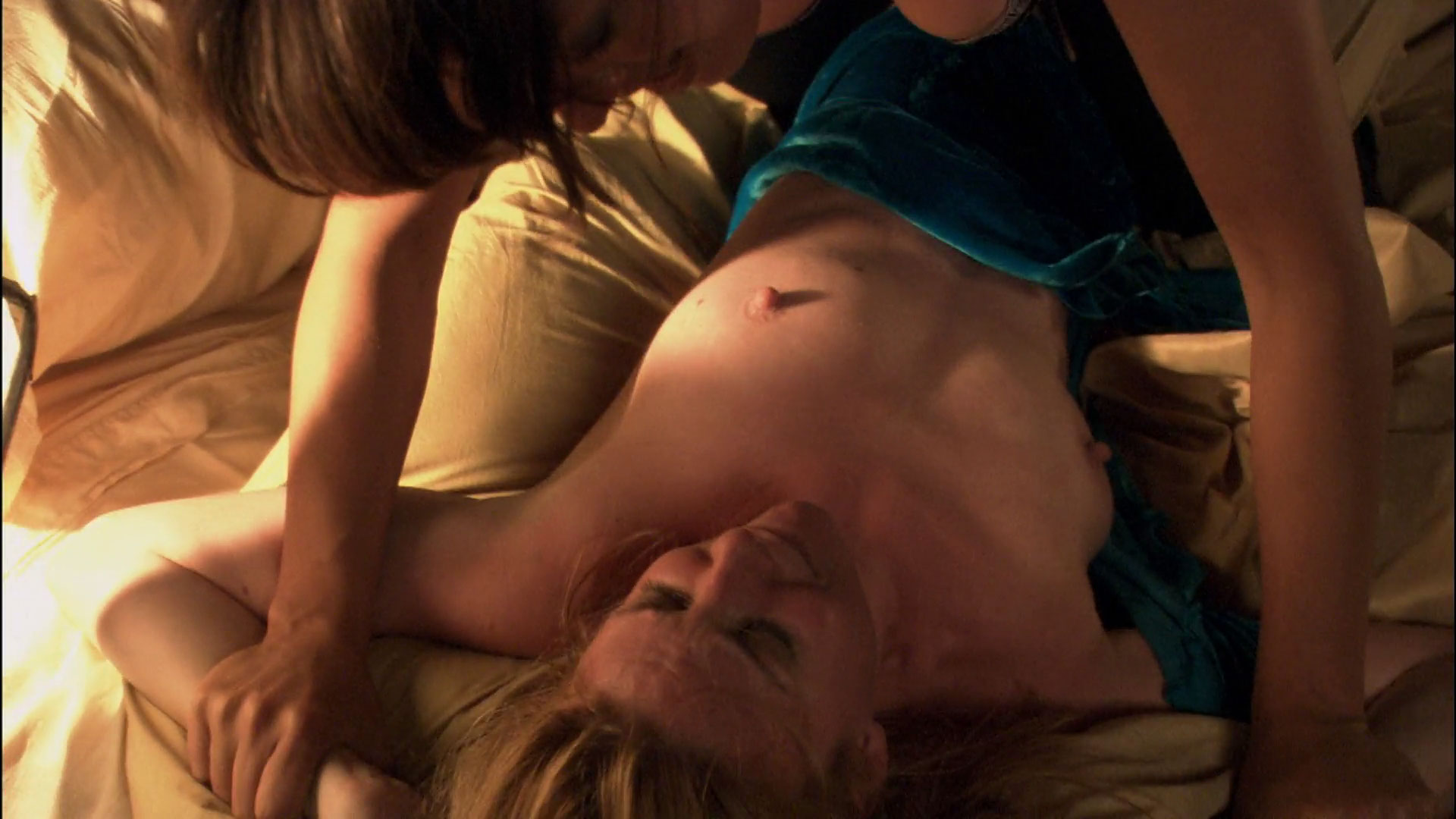
The show is very “rapey”…
and it never has any consequences. There are multiple instances in The L Word that a form of rape is depicted, but rarely does this have any consequence for either the rapist or the victim. In the first season Bette forces herself onto an angry Tina in what at best can be described as “angry hate sex”. Never is made of this again afterwards.
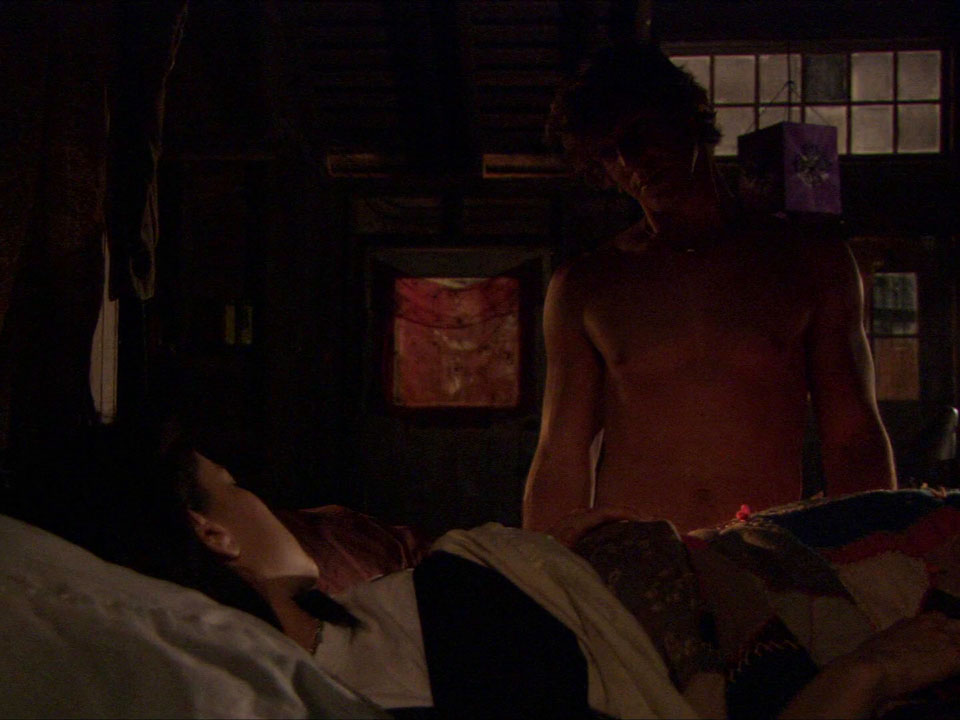 Before leaving Jenny’s ex-boyfriend Tim comes to say goodbye and does so by climbing in bed with a sleeping Jenny and shoving his penis inside her. Once again, nothing is made of this for the rest of show. Alice forces the lesbian-identified Lisa to use his penis during sex. He feels betrayed and violated afterwards, to which Alice responds by callously saying “You had a good time!”. Obviously referring to him having an orgasm.
Before leaving Jenny’s ex-boyfriend Tim comes to say goodbye and does so by climbing in bed with a sleeping Jenny and shoving his penis inside her. Once again, nothing is made of this for the rest of show. Alice forces the lesbian-identified Lisa to use his penis during sex. He feels betrayed and violated afterwards, to which Alice responds by callously saying “You had a good time!”. Obviously referring to him having an orgasm.
And this is all just in the first season. In the second season there is a multi-episode story-arc in which a male roommate of Shane and Jenny equips the entire house with hidden cameras and records them 24/7. When they find out about this, there are no real consequences for him, aside from a scolding by Jenny. They even let him be their roommate until the end of the season after which he disappears without ever being mentioned again.
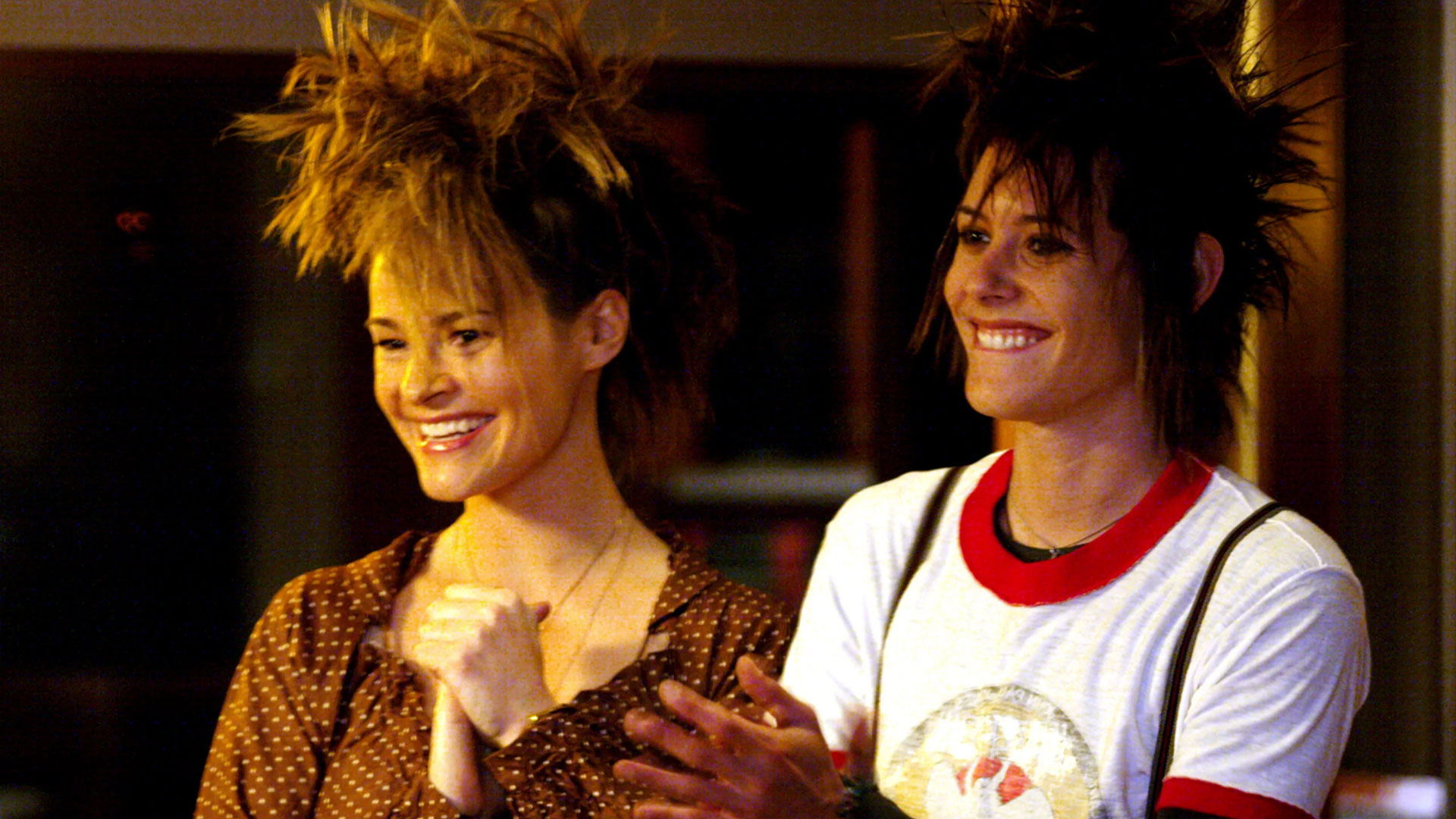
The lack of growth in characters
Sometimes shows are about journeys people take and the audience gets to see how they evolve over multiple seasons. Take Breaking Bad for example: none of the central characters is the same person he or she was at the beginning of the show. Walter White goes from a mild mannered high school chemistry teacher to a ruthless drug kingpin. Jesse goes from a carefree kid to a broken man.
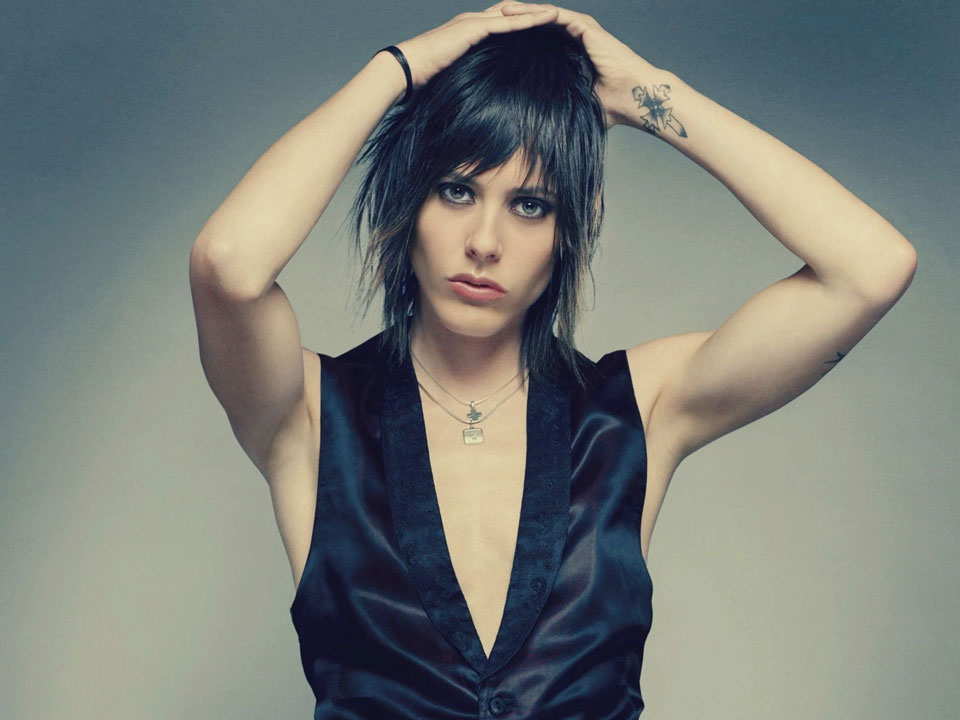 In The L Word the character that is developed the least is Shane. She’s an alpha female who seduces basically everyone she’s even remotely interested in. She also can’t say no, so she has sex with basically every woman who makes a pass at her. Right from the start Shane’s lack of sexual reservations bites her in her face as she’s stalked by a girl who’s has been one of her many one-night-stands. Most people learn from experience, but not Shane. Shane goes through all six seasons not learning one thing from the mistakes she makes.
In The L Word the character that is developed the least is Shane. She’s an alpha female who seduces basically everyone she’s even remotely interested in. She also can’t say no, so she has sex with basically every woman who makes a pass at her. Right from the start Shane’s lack of sexual reservations bites her in her face as she’s stalked by a girl who’s has been one of her many one-night-stands. Most people learn from experience, but not Shane. Shane goes through all six seasons not learning one thing from the mistakes she makes.
There are moments when they try to have the character grow or evolve but every relationship they give Shane, they have her destroy. At the end of season six Shane is exactly where she was at the beginning of season one. A single woman fucking everything woman that comes across her path, sometimes destroying the relationship that person is in.
But while Shane’s character is consistent throughout all six seasons the show also has characters go all over the place. Helena Peabody is introduced as a foil between Bette and Tina in season two, but suddenly becomes this friend of the group in season three. Early on in season three Alice becomes this total nut-job who is obsessed with Dana, a far cry from her usual plucky character.
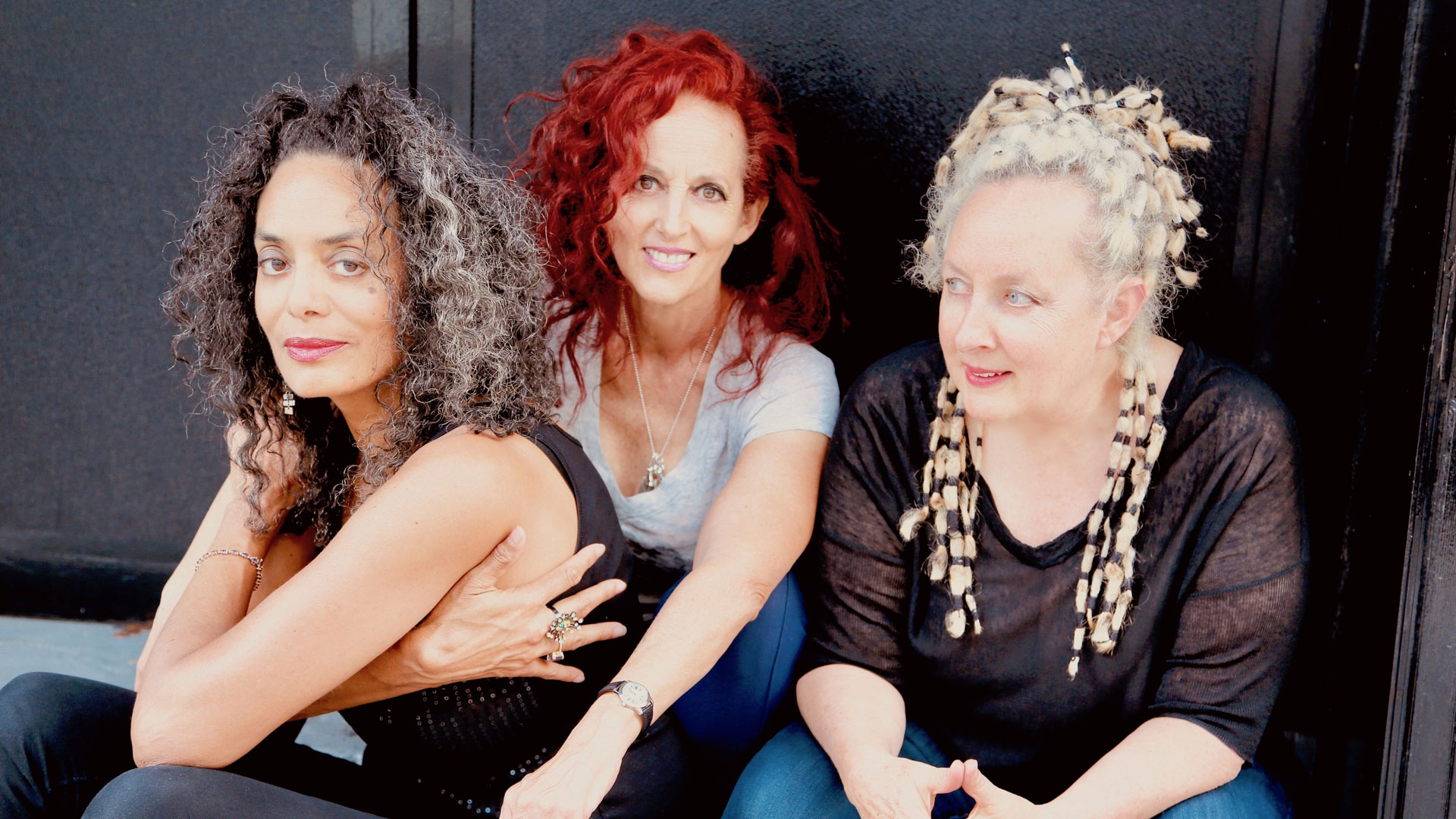
The nepotism of “Betty”
The theme song of The L-Word is widely considered to be one of the worst theme songs ever. It never bugged me that much. In fact: my girlfriend and me sang with the theme song every week. Always tripping over the “fighting, fucking, crying” part. That theme song was made by an all female band named Betty. Now the reason they got to make the soundtrack is fairly obvious: at the time the creator of the show, Ilene Chaiken, was dating the lead singer of Betty, Elizabeth Ziff.
So you might be thinking: it’s just a theme song. Well, it doesn’t stop there. Ziff was also put in charge of scoring the show, which especially in the second season meant that variations on or snippets from the theme song were used throughout entire episodes. It got annoying really fast.
To make things even worse, the entire band shows up in several episodes. In one case they’re even mentioned by name and perform an actual song from their album. It’s all too obvious they’re shoehorned into the episodes just because the lead singer is dating the show-runner. Of course these kind of strings are pulled in every industry on a daily basis. But they are hardly pulled as obvious and out in the open as with Betty and The L Word.
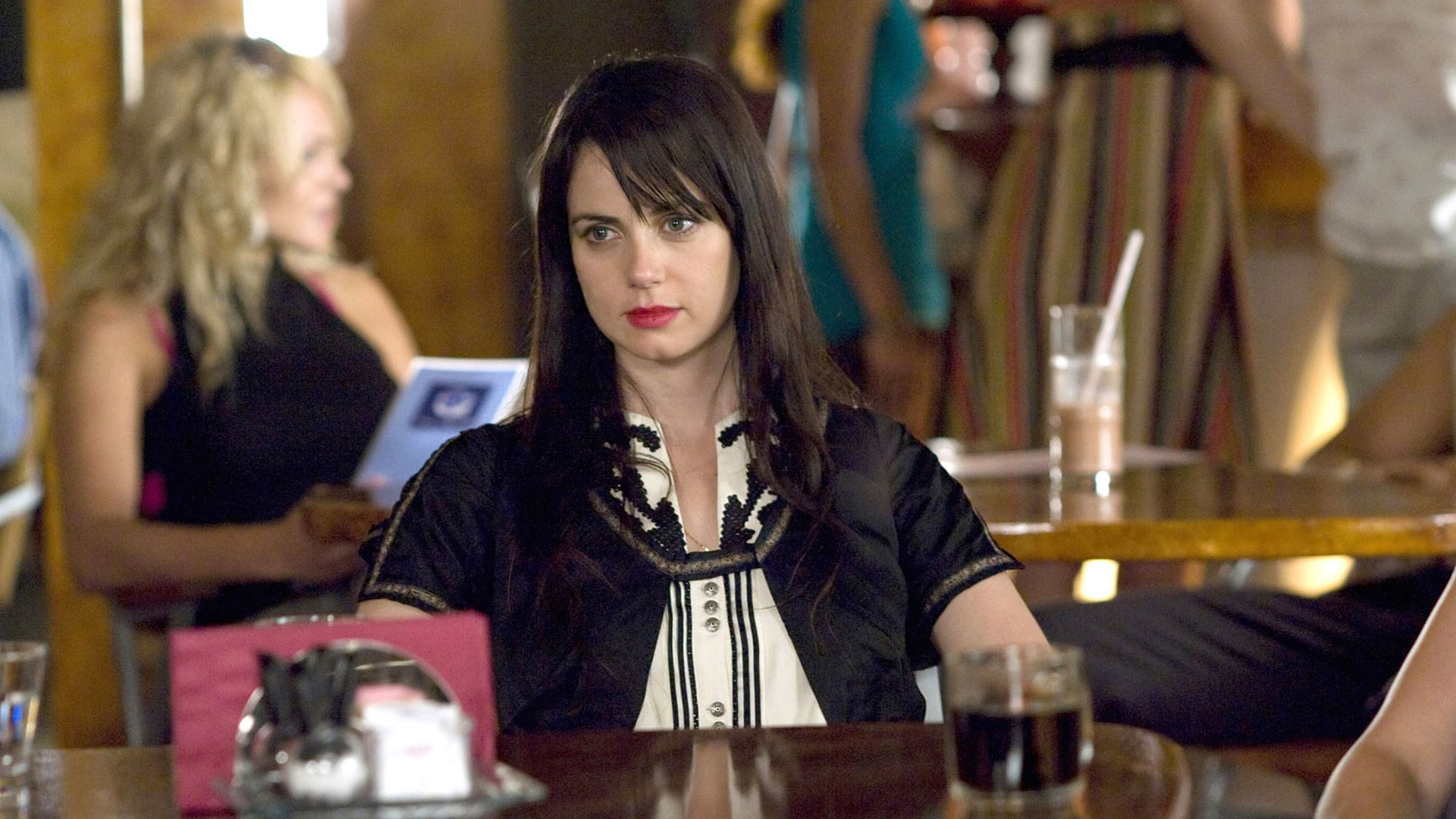
Re-watching The L-Word was a fun ride. A lot of the elements that drew me to this show back then still apply today. It’s a sexy show full of memorable characters. As a straight white male the approach the show made to bisexuality and transgenders didn’t bother me as little now as it did back then. But if you’re trans and the only representation of a trans-person on TV is Max Sweeney, I can see how that could be problematic for someone. But times change, and shows and movies should be held to the standard of the time they were made. Not everything holds up well, but then again: should it?
There are probably movies and shows coming out today that will be called problematic years from now. Yet we enjoy them anyway. The L Word: generation Q fixes a lot of the problems mentioned above. It has multiple transgender characters and also features a wider array of lesbians than just the lip-stick kind. But chances are that in 10-20 years that show will also be viewed through a different lens and might contain problematic elements we are blind to now.
That is just progression I guess.
